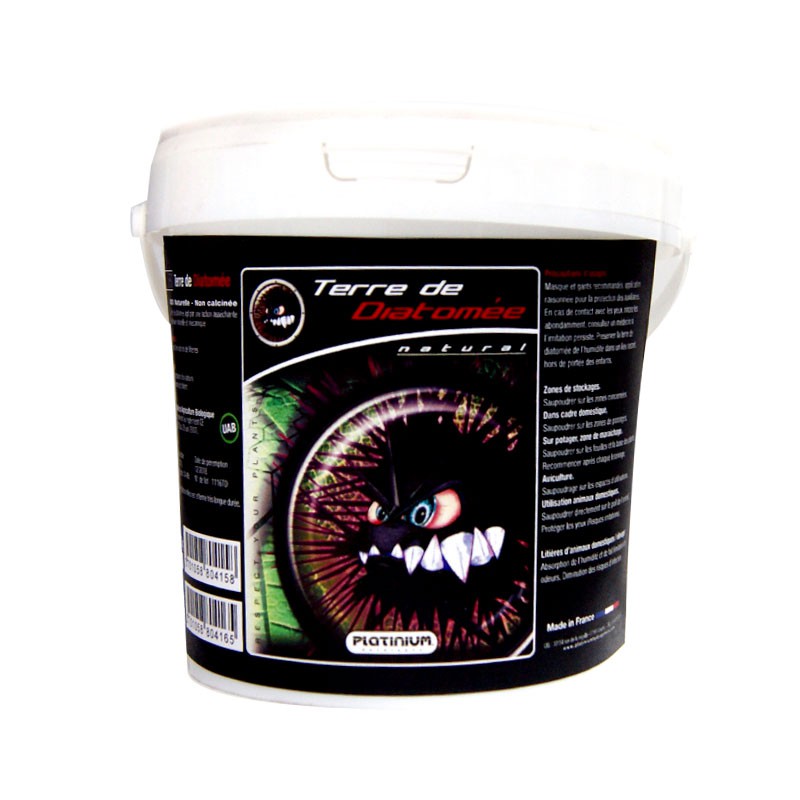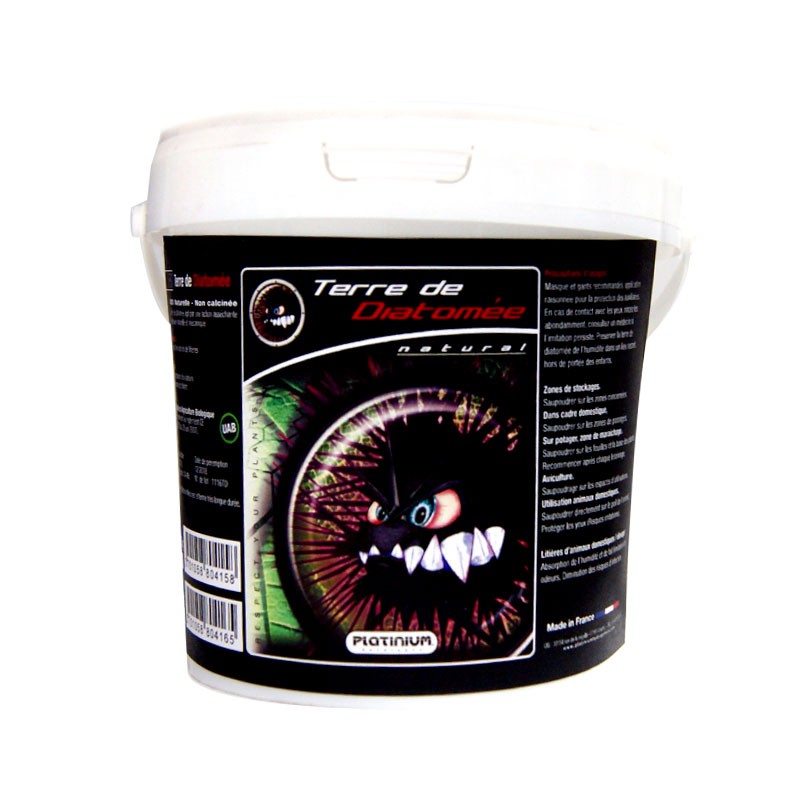





Platinium - Diatomaceous Earth - 1Kg
Diatomaceous Earth acts by a natural and mechanical drying and abrasive action.
| -20% | €11.17 |
| -15% | €11.87 |
| -10% | €12.56 |
| -7.5% | €12.91 |
| -5% | €13.26 |
You will like also
Product details
DIATOMACEOUS EARTH BY PLATINIUM
Diatomaceous Earth - Non-calcined - 100% natural
Diatomaceous earth is extracted from natural quarries and refined by mechanical process, without any chemical transformation, to obtain a very fine sand, composed of microscopic algae fossils (diatoms). The sand thus obtained offers multiple applications and benefits in the garden: diatomaceous earth is naturally rich in elements essential to the proper development of plants: calcium, magnesium, sulfur and trace elements and silica. Retains moisture and aerates the substrate.
The composition of the Diatomaceous Earth
SUPPORT OF CULTURE NF U 44-551. Sand.
Dry Matter (DM): 95%
Conductivity : 0,4mS/cm
Retention capacity for water : 75%
Retention capacity for air : 10%
pH : 5-6
Grain size range : 0.3 - 0.5 mm
How to use diatomaceous earth for your indoor culture
Indication for use:
Diatomaceous earth is used in mixture with other substrates (potting soil, coco, ...) or in direct dispersion on the soil around the plants. The use of a blower is recommended for a better dispersion. For plants in the ground and plants in pots.
In mixture: 5-20% of the volume of substrate (density: 400g/L)
In dispersion: 20-50g per plant (young plant)
50-100g per plant (established plant).
50-100g per m² (vegetable garden).
Dosage to be modulated according to the size of the plant and its stage of growth.
Apply preferably on dry soil and renew the application after leaching (rain/watering).
Precautions for use:
Wearing gloves (polyurethane-coated nylon) advised in case of simple handling.
Wear gloves, goggles and respiratory mask (type FFP2 or FFP3) if used for a long time.
For indoor use, provide adequate ventilation.
UAB Usable in Organic Agriculture (in accordance with the EC regulation n°834/200 of June 28, 2007).
Storage in a dry and closed environment for a very long time.
Technical sheet
- Recommended usePlant carePackaging1 KgProduct typeOrganiqueApplicationHydroponics, Earth, Coco, Rock woolType of fertilizerMineralMarqueNos emballages et produits peuvent faire l’objet d’une consigne de tri
Community reviews

